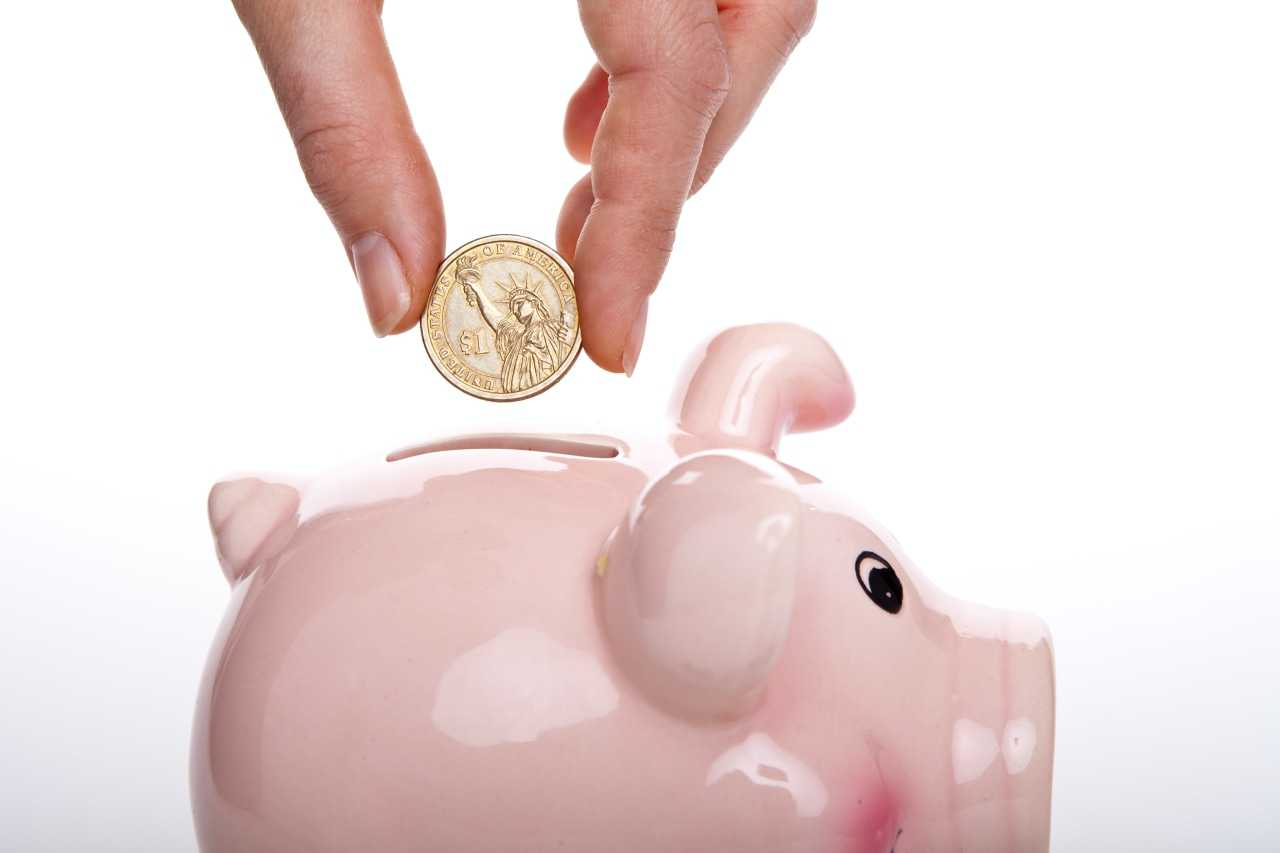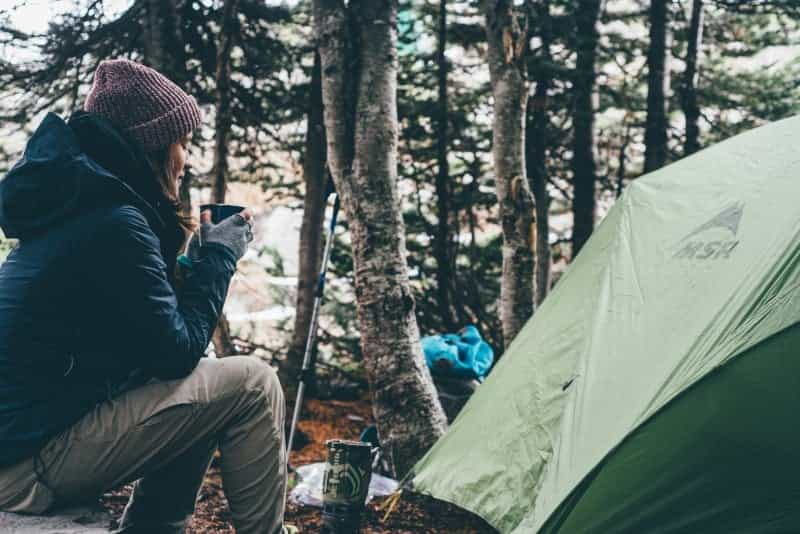Camping on a budget: 15 ways to keep your holiday costs down
Camping is generally a very affordable way to take a break, with plenty of options around for families, couples and solo travellers.
However, there are always ways to make your holiday cheaper still, so here we’ve compiled some of our top tips for camping on a budget.

-
Go wild
Wild camping has to be the cheapest holiday option of all: it’s free! However, you’ll need to plan ahead for a wild camping trip – including finding out whether it’s legal in the area you’ve chosen. Our wild camping guide should give you all the basic information you need if you’d like to try it out.
-
Go back to basics
If true wild camping isn’t for you, look for a nearly-wild campsite with minimal facilities. If you’re not going to use things like swimming pools and tennis courts, why pay for them? Using Pitchup’s tick-box filters will help you focus on the facilities that matter to you, such as making sure you can access toilets and showers.
-
Find the best deals on campsites
If you’re browsing Pitchup for affordable campsites, make sure you’ve ordered your listings by ‘Price (low to high)’ once you’ve entered your dates: this makes it much easier to see the cheapest options. Pitchup’s price match policy means that you won’t find cheaper prices anywhere else online.
It’s also worth looking at the offers page to see if you can find any suitable discounts.
-
Travel outside the high season
As with many aspects of travelling, prices are at their highest on summer weekends. If you can travel outside of school holidays, take midweek breaks or even embrace winter camping, you’re more likely to be able to find cheap camping options.
-
Avoid tourist hotspots
Locations in national parks and popular seaside resorts are likely to be more expensive, so think about nearby less well-known areas. For example, if you’re going to Cornwall, try looking for inland campsites rather than those by the coast. Or, if Pembrokeshire is a bit expensive, check out neighbouring Carmarthenshire instead.
-
Stay close to home
You don’t need to travel far to find a complete change of scenery. Swapping a long drive for a journey of an hour or so to a nearby coastal or rural area will save on petrol money and stress – and it’s better for the environment too.
-
Stick to basic camping kit
Unless you’re going to be camping regularly or in demanding conditions, there’s no need to invest in lots of expensive equipment. Focus on the basics – a good tent, a decent sleeping bag – and then get creative with things you already own. Bring blankets for extra warmth and old pans for cooking, and never underestimate the power of a pair of cosy socks and woolly hat for night-time warmth.

-
Borrow camping gear
Even though finding a cheap campsite might be easy, you still have to provide all your own equipment, and that can push up costs if you’re not careful. Before buying a tent, a camping stove or even a coolbox, ask around to see if any of your friends or family have one you can borrow. You may even find that people want to give their kit away permanently to clear space in their garage or loft.
-
Buy second-hand camping kit
Online auction sites can be great for finding things like sleeping bags and tents – with the latter, just make sure you check immediately that there are no parts missing if they have been used. Keep an eye out in charity and second-hand shops for smaller items such as travel mugs or cooking pots.
-
Do some off-season shopping
Early summer is usually the most expensive time to buy camping equipment – so, if you can, try to leave your purchases until late summer, autumn or even the January sales, when many shops will be selling off last year’s stock. Signing up for email alerts from your favourite retailers will alert you to any discount events coming up.
-
Plan ahead and pack well
Buying anything at the last minute usually means higher prices: that goes for anything from a next-day delivery sleeping mat to a can opener in the local corner shop. Save yourself from any unexpected purchases (and the accompanying stress) by making a packing list well ahead of departure and double-checking you’ve got everything before setting off.
-
Don’t overpack
Although you don’t want to be left without something vital, it’s also not worth buying a whole lot of things you won’t use. To help with this, check ahead what’s provided at your site (drinking water, washing-up liquid, toilet roll) and find out what the campfire rules are. There’s no point bringing along a bargain stack of firewood only to find that fires are banned or you’re only allowed to use wood bought on site.
-
Bring your own food
Eating out is part of the joy of a holiday, but it can be expensive if you’re doing it every day. Bringing along meals you prepared at home to eat on site will help to save money – especially if you’re just heating something up on the stove or campfire rather than using lots of gas to cook from scratch. If you’ve not cooked on a campfire before, read our guide to campfire cookery for some ideas.
-
Make your own entertainment
Camping isn’t just a cheap holiday – it’s one that comes with its own brand of outdoor entertainment, much of which is either free or at a minimal cost. A frisbee, a football and some campfire marshmallows will go a long way on a family camping holiday – and you can even turn the prep and cooking of an outdoor meal into a fun activity if you approach it in the right way.
-
Consider other outdoor breaks
The idea of glamping as a cheap holiday might seem counterintuitive, but it’s worth remembering that the accommodation and accessories are generally provided. If you’re looking at buying lots of equipment just for a one-off camping trip, you may find that staying in a glamping tent actually works out cheaper. It’s also worth looking at static caravans and camping pods for similar reasons.
See all Pitchup glamping sites
See all Pitchup static caravans
Budget camping FAQs
How do I find a cheap campsite?
Use Pitchup to search for your location and dates, then order the listings by ‘Price (low to high)’ so you can see the cheapest options at the top of the page.
How do I find cheap camping gear?
Buy second-hand or look out for end-of-season promotions. Better still, ask around to see if any of your family or friends have something you can borrow.
How much do budget campsites cost per night?
Campsite prices vary depending on the location, season and the facilities provided. If you choose a simple non-electric tent pitch prices can start at around £5 per night for low season and £10 per night in high season.
What are the best tips for camping on a budget?
-
Book ahead for the best prices
-
Avoid high season and popular tourist destinations
-
Plan meals in advance and bring everything you need with you